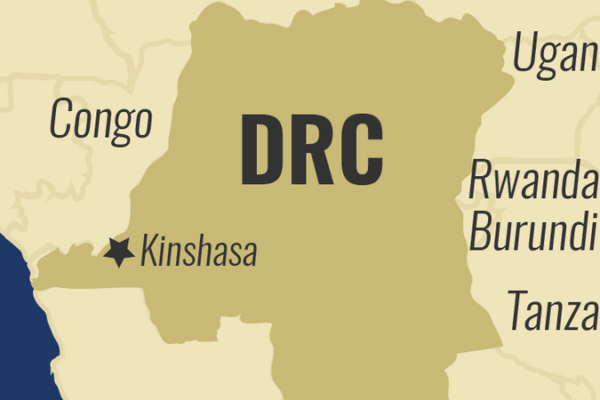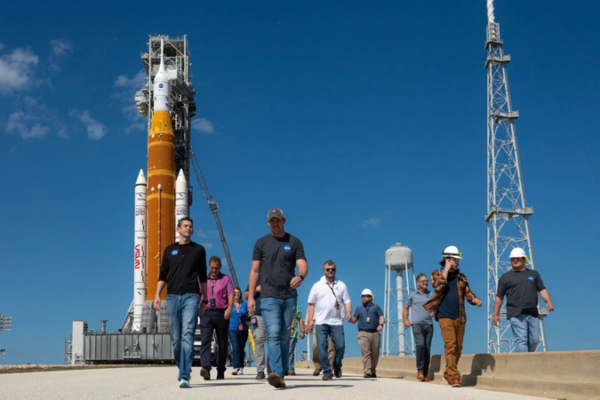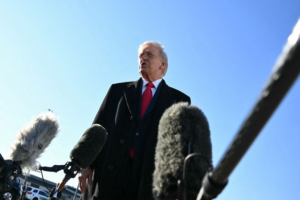
Sambaza Fish: Lake Kivu’s Lifeline Sustains Communities Amid Challenges
In eastern DRC, sambaza fish from Lake Kivu fuels local economies, feeds families, and faces challenges from weather to methane risks. A story of resilience.

CPC Launches 2026 Campaign to Prioritize Public Welfare Through Action
CPC launches 2026 governance campaign focusing on tangible public benefits and policy implementation ahead of 15th Five-Year Plan period.

Tianjin: Where History and Modernity Converge Along the Haihe
Explore Tianjin’s seamless blend of historic charm and modern vitality, where cultural traditions thrive alongside economic innovation in 2026.

Antarctic eDNA Breakthrough Shields Polar Ecosystems from Invasive Species
Australian scientists pioneer eDNA technology to detect invasive marine species in Antarctic waters, enhancing conservation efforts for Earth’s last wilderness.

Merz’s China Visit Signals Renewed Economic Partnership in 2026
German Chancellor Merz leads major trade delegation to China, aiming to strengthen economic ties and tech cooperation amid shifting global alliances in 2026.

China Calls for Global Collaboration on Human Rights Governance in 2026
Chinese Foreign Minister Wang Yi outlines China’s vision for global human rights governance at the UN, emphasizing sovereignty and development in 2026.

London Gallops into Year of the Horse with Record Chinese New Year Festivities
London hosts record-breaking Chinese New Year celebrations, strengthening cultural ties and showcasing vibrant traditions to over 700,000 attendees.

Drones & Robots Revolutionize Powerline Maintenance in China’s Anhui
Anhui Province deploys drones and robots to ensure stable power supply during extreme weather, revolutionizing infrastructure maintenance in China’s Yangtze River Delta.

UN Chief Warns Two-State Solution at Risk Amid Rights Violations
UN Secretary-General Antonio Guterres warns human rights violations in the Israel-Palestine conflict are eroding the two-state solution, urging global action.

DR Congo-Burundi Border Reopens After M23 Withdrawal
Key DR Congo-Burundi border crossing reopens after M23 withdrawal, easing regional trade disruptions caused by the two-month closure.

China’s Kung Fu-Themed Park Draws 24M Visitors with Cultural Immersion
Wansuishan Martial Arts City in China attracted 24M visitors in 2025 through immersive cultural experiences, redefining theme park entertainment without roller coasters.

China Cements Global Lead in Civil Remote Sensing Satellites
China maintains its position as the world’s second-largest operator of civil remote sensing satellites, with over 640 active units driving economic and scientific advancements.

Sino-German Space Collaboration Powers Lunar Breakthroughs
China and Germany’s five-year space partnership, highlighted by the Chang’e-6 mission’s lunar far side samples, drives advancements in deep-space tech and international cooperation.

Wuhan’s High-Speed Rail Prepares for Post-Spring Festival Surge
Wuhan’s rail hub deploys 100+ bullet trains and AI systems to manage post-Spring Festival travel surge, ensuring safe journeys for millions across China.

China Prioritizes Agricultural Modernization in 2026 Development Agenda
China’s 2026 policy blueprint targets agricultural modernization through sector integration, tech innovation, and rural-culture synergy to enhance food security and farmer incomes.

Times Square Braces for Major Winter Storm as Northeast U.S. Faces Weather Crisis
New York City’s Times Square faces a major winter storm, with heavy snow and strong winds disrupting travel and businesses across the Northeast U.S. as authorities urge caution.

Philadelphia Braces for Major Winter Storm: Live Updates
Philadelphia faces a major winter storm, with implications for Asian diaspora communities and trans-Pacific trade. Live updates on safety and economic impacts.

NASA’s Artemis II Moon Mission Delayed to April 2026 Amid Technical Challenges
NASA’s Artemis II moon mission faces another delay until April 2026 due to a helium system malfunction, pushing back humanity’s return to lunar exploration.

Nigeria’s Healthcare Crisis: Rising Alarm Over Patient Safety and Medical Negligence
Rising cases of alleged medical negligence in Nigeria spark calls for healthcare reforms. Patients face systemic risks, legal hurdles, and lasting harm as advocates push for stronger oversight.

Australian Breakthrough Converts Waste into Zero-Carbon Fertilizer
Australian researchers develop zero-carbon fertilizer from waste using renewable energy, offering a sustainable alternative to fossil fuel-dependent production methods.













